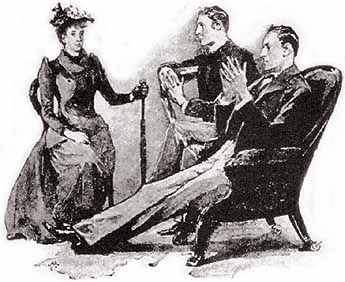
We know that Sherlock Holmes lived in London — we have this on the authority of Arthur Conan Doyle. But we would resist saying that the residents of London have included Sherlock Holmes. How can the one be true but not the other?
Suppose that Doyle had written a story in which Holmes had had tea with prime minister William Gladstone. Then it would seem correct to say that Holmes had had tea with Gladstone, but wrong to say that William Gladstone had once had tea with Sherlock Holmes. What can we make of this? Can Doyle be wrong about his own character’s actions? Is all fictional discourse false?
We don’t normally regard it so. “If you say that Sherlock Holmes lived in Baker Street I may wager that you are mistaken,” writes philosopher John Woods. “Then, as we all very well know, what you say wins the bet; what I say loses it. … It is an interesting and important curiosity of the affair that [the argument] that Holmes could not have lived in Baker Street because he could not have lived anywhere, he being but fictional, is not automatically, or always, if ever, deemed a satisfactory endorsement of my claim at the expense of yours. The bet is still yours.”
(From The Logic of Fiction, 1974.)
